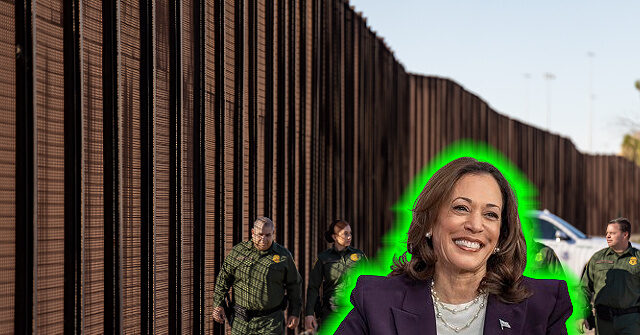In a recent interview on Fox News Channel’s “Special Report,” Vice President Kamala Harris addressed questions about the Biden-Harris administration’s immigration policies, particularly the decision to end the Remain in Mexico policy. Harris emphasized that the administration’s focus has been on reforming a broken immigration system from day one. She pointed out that various legislative initiatives have been introduced with the aim of addressing immigration issues. Host Bret Baier posed specific questions regarding the estimated number of illegal immigrants released by the administration over the past three and a half years, leading to a discussion about the implications of reversing previous policies established by the Trump administration.
When Baier pressed Harris for specific figures regarding immigration, she acknowledged that the topic is indeed significant and often discussed. However, rather than providing a numerical estimate, Harris redirected the conversation to highlight the administration’s insistence on the underlying challenges within the immigration system that necessitate comprehensive reform. Baier quickly interjected with an estimate from Secretary of Homeland Security Alejandro Mayorkas, noting that approximately 6 million people might have been released into the country during the Biden-Harris administration’s tenure. This figure set the stage for a deeper exploration of the administration’s immigration strategies.
The dialogue became more contentious as Baier pointed out that the Biden administration had reversed a number of Trump-era border policies, specifically the practice of detaining illegal immigrants who entered the U.S. or remained in Mexico. Instead, the new administration adopted a different approach, allowing many to be released while awaiting trial, which, according to Baier, raised concerns about the potential for released individuals to commit further crimes. Given this context, Baier questioned whether Harris regretted the decision to terminate the Remain in Mexico policy, pressing her to consider the consequences of this significant policy shift.
In her defense, Harris reiterated her administration’s commitment to comprehensive immigration reform and highlighted the legislative efforts that were prioritized immediately upon taking office. She noted that fixing the immigration system was a key objective for the administration and mentioned supporting bipartisan efforts aimed at strengthening border security. Harris indicated that the administration recognized the importance of addressing the complexities of the immigration system head-on, including improvements to the asylum process, increasing penalties for illegal crossings, and enhancing resources at points of entry.
Throughout the interview, Harris maintained that the administration’s initiatives were designed to create a more effective immigration system while addressing safety concerns. She asserted that among the strategies implemented was an increase in the number of border agents, which received support from Border Patrol members. This mention of bipartisan collaboration on border security measures underscored the administration’s commitment to tackling immigration issues within a broader national context, emphasizing that the challenges faced were not merely partisan in nature.
In summary, the exchange between Harris and Baier highlighted the complexities and contentious nature of immigration policy discussions in the U.S., particularly regarding the Biden-Harris administration’s approach to reversing previous policies and their impacts. While Harris sought to frame the administration’s actions as part of a larger effort to reform an outdated system, Baier’s inquiries pointed to the immediate consequences of policy changes and the ongoing debate surrounding border security and immigration control. The interview underscored the importance of addressing immigration in a way that balances humanitarian considerations, legal processes, and national security concerns, informing the broader dialogue leading up to the 2024 presidential election.

